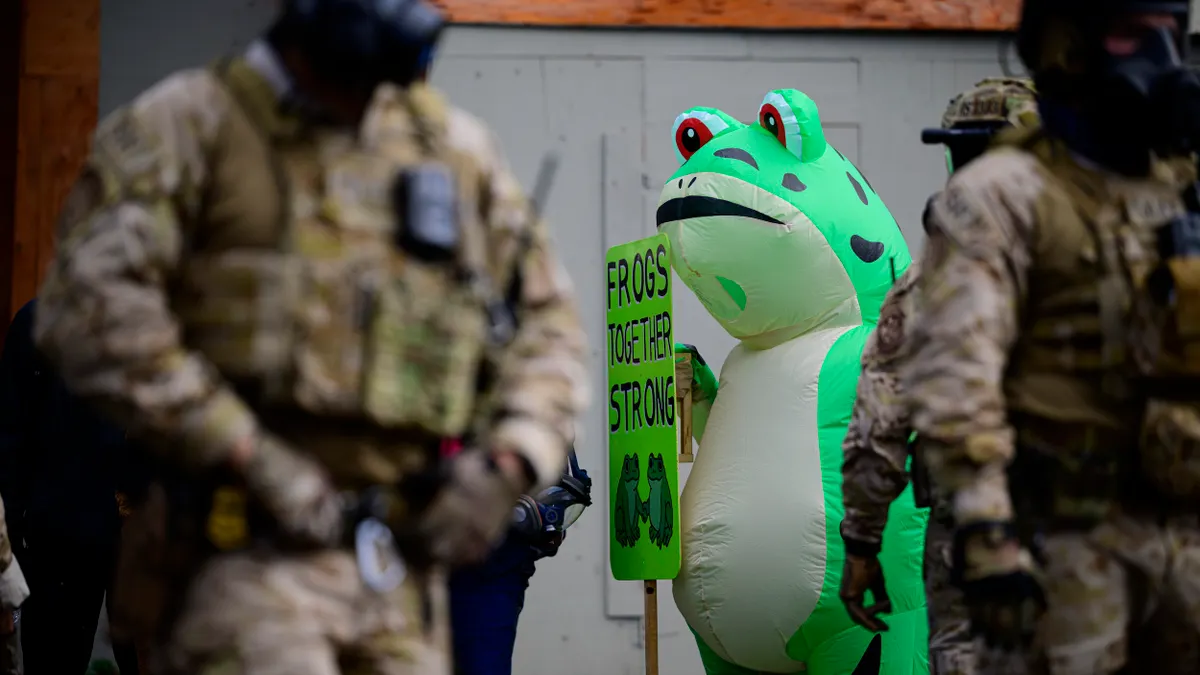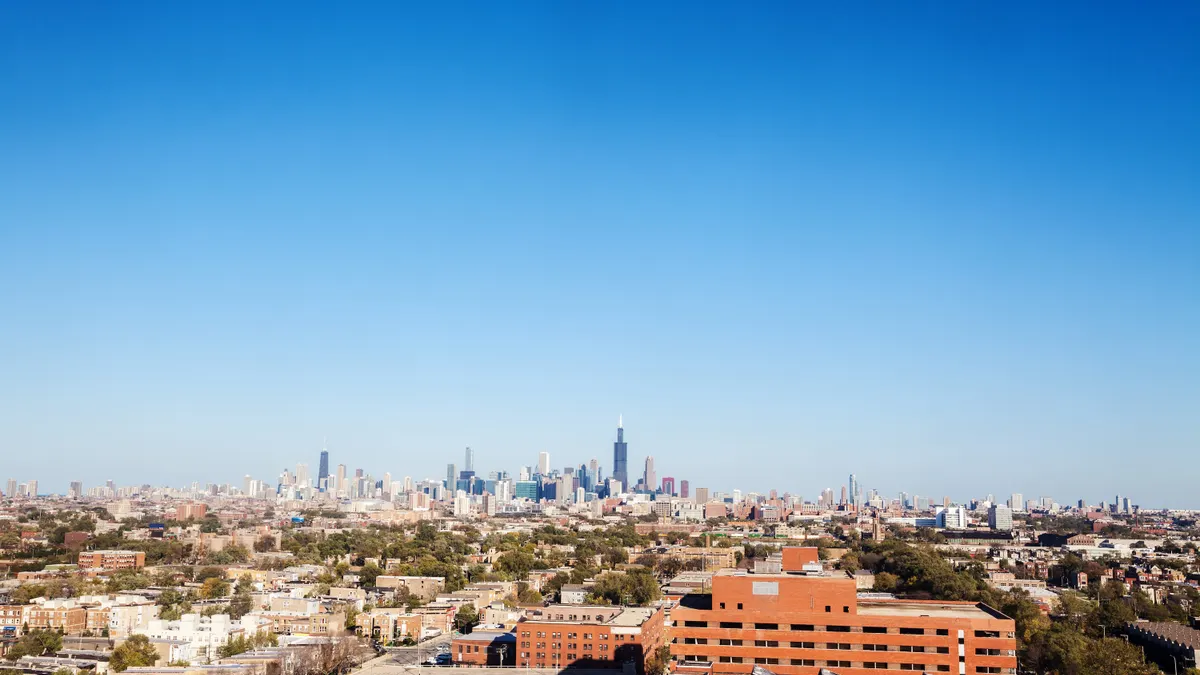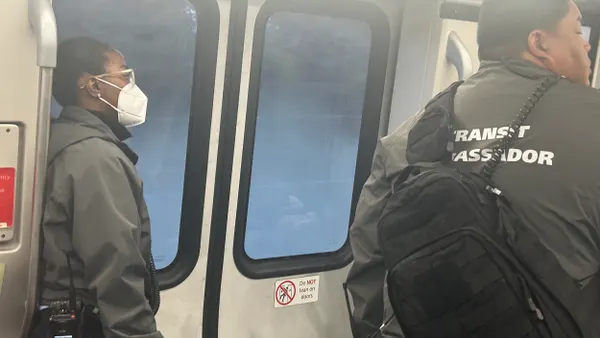UPDATE: Nov. 10, 2025: U.S. District Court Judge Karin Immergut on Friday issued a permanent injunction barring the Trump administration from deploying any National Guard troops in Portland, Oregon, in response to protests at an Immigration and Customs Enforcement facility.
In a 106-page opinion, Immergut said the president’s “unlawful federalization of the National Guard violates the Tenth Amendment, which ‘reserves to the States’ any powers not expressly delegated to the federal government in the Constitution.”
Immergut also wrote that “the trial evidence established that there was neither ‘a rebellion [n]or a danger of a rebellion against the authority of the Government of the United States’ at the Portland ICE facility” that would justify the use of National Guard under U.S. Code Title 10, Section 12406.
The permanent injunction is the district court’s final order in a September lawsuit filed by Portland and Oregon after the Trump administration attempted to federalize and deploy first 200 Oregon National Guard troops and then National Guard troops from California and Texas to Portland without the Oregon governor’s consent. The lawsuit argued that state, local and federal resources were sufficient to manage the protests.
Portland Mayor Keith Wilson said in a statement that the ruling “vindicates Portland’s position while reaffirming the rule of law that protects our community.”
“Portland values the constitutional right to free speech, and we will defend those rights,” Wilson said. “We will continue fighting in court and working with state and community partners to ensure public safety, protect civil rights, and stand up for our immigrant community.”
Department of Homeland Security Assistant Secretary Tricia McLaughlin said Sunday in an emailed statement that Trump “is using his lawful authority to direct the National Guard to protect federal assets and personnel in Portland.”
Dive Brief:
- After a three-day trial, U.S. District Judge Karin Immergut on Sunday issued a preliminary injunction blocking the Trump administration’s deployment of National Guard troops in Oregon, saying the federalization of troops from Oregon, California and Texas likely violates the 10th Amendment. She said a permanent injunction will follow by Friday.
- The federal government appealed Immergut’s earlier temporary restraining order, which blocked Trump from deploying federalized National Guard troops from anywhere in the country to Portland. The Ninth Circuit Court of Appeals has agreed to rehear an earlier ruling that favored the Trump administration.
-
The injunction “changes the appeal’s playing field,” said Paul Lucas, associate professor of criminal justice and criminology at East Carolina University. “It now becomes the operative order the U.S. Court of Appeals for the Ninth Circuit must address.”
Dive Insight:
In its Oct. 20 stay of Immergut’s temporary restraining order, a split three-judge panel said the district judge “erred by discounting most of the evidence of events in Portland from June through September.” The panel said the Trump administration was likely to establish that it lawfully federalized the National Guard to quell protests outside an Immigration and Customs Enforcement building in Portland.
Immergut addressed the panel’s assertion that it “must give a great level of deference” to the president’s assessment that National Guard deployment is necessary. While applying “a great level of deference to the President’s determination that a predicate condition exists,” Immergut determined that the protests between June and September “were generally uneventful with occasional interference to federal personnel and property.”
“Based on trial testimony that this Court found credible, particularly the testimony of Portland Police Bureau command staff, who work in Portland and have first-hand knowledge of the crowds at the ICE building from June to the present, the protests in Portland at the time of the National Guard call outs are likely not a ‘rebellion,’ and likely do not pose a danger of rebellion,” Immergut wrote.
DHS said in an emailed statement, “The law, U.S. Constitution and supremacy clause back the President’s action to protect the public and law enforcement, and we expect a higher court to vindicate us on this.”
Lucas said Immergut’s new ruling “changes what the appeals court is looking at.”
“Instead of reviewing a quick, temporary stop, they now have to weigh a full injunction backed by detailed findings,” Lucas said. “So now, the big legal question is whether the federal government has met the legal requirements for federalization of National Guard troops, and Judge Immergut has leaned toward no, [it has] not done so convincingly. However, we will know more this Friday.”
Editor's note: This article was updated to include a statement from the Department of Homeland Security.













